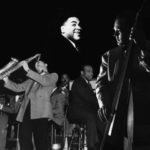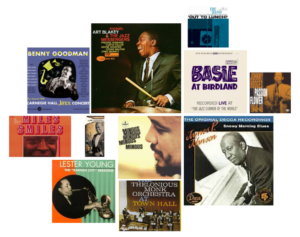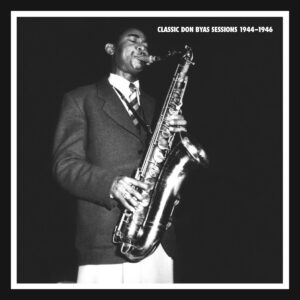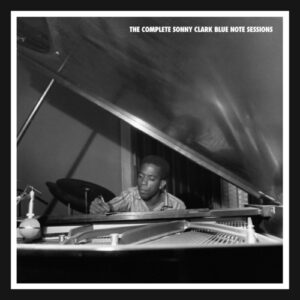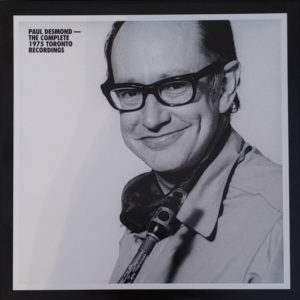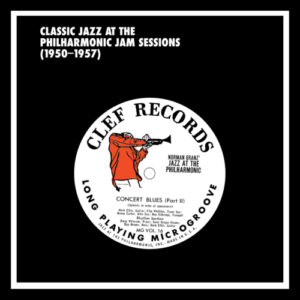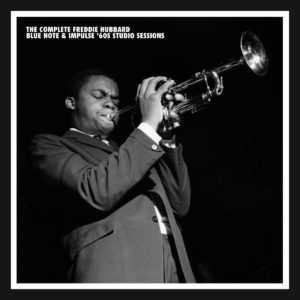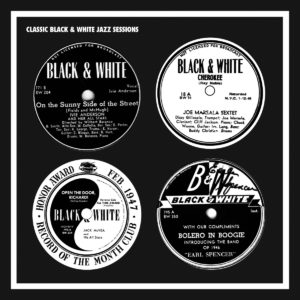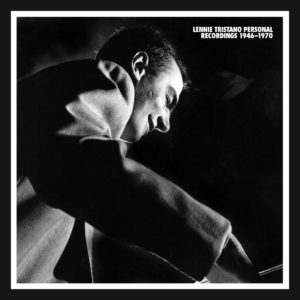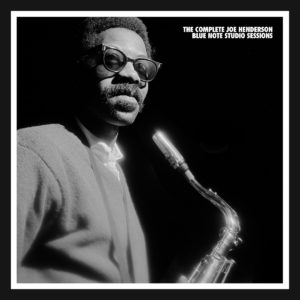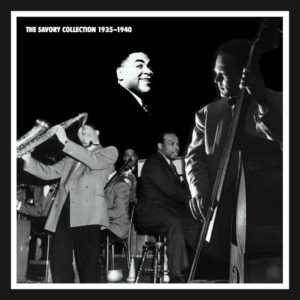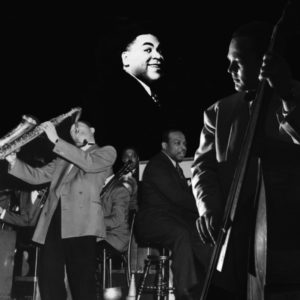Earl Hines
"Earl Hines was the first major jazz pianist to utilize both of his hands in adventurous flights without missing a beat." - Scott Yanow
Earl Hines
By Scott Yanow
Earl Hines was one of the greatest jazz pianists of all time. His solos were consistently exciting (whether from 1928 or 1968) and he had an innovative approach of his own from virtually the start of his career. In the 1920s most jazz pianists were trying to emulate the stride style of James P. Johnson, keeping time with their left hand by striding back and forth between bass notes and chords while their right played melodic variations.
Earl Hines was the first major pianist to break up the striding, suspending time during wild breaks that utilized both of his hands in adventurous flights while always coming back without missing a beat. In addition, his right hand often played octaves so as to be heard clearly over ensembles (even a big band) in what was dubbed “trumpet style.” With his dazzling technique and constant delight at playing the unpredictable even on familiar songs, Earl Hines was always a joy to hear.
Earl Hines & His Orchestra
Harlem Lament
Charlie Allen, George Dixon (tp), Walter Fuller (tp, vcl), Billy Franklin (tb), Trummy Young (tb), Louis Taylor (tb, arr), Omer Simeon (as, bari), Darnell Howard (cl, as, vln), Cecil Irwin, Jimmy Mundy (ts, arr), Earl Hines (p), Lawrence Dixon (g, arr), Quinn Wilson (b, tu, arr), Wallace Bishop (d), Valaida Snow (vcl) – October 27, 1933
By Brian Priestly
Gunther Schuller’s mighty tome has 29 pages on the virtues of Earl Hines’ piano and his band, of which four are devoted to making an exemplary case for Harlem Lament. Composed and arranged by bassist Wilson, it’s the longest feature yet for the pianist within a band number, and has him backing the muted trumpet melody (probably by Dixon not Allen) as well as taking a 32-bar solo, of which bars 15-30 inclusive are transcribed by Schuller.
It’s worth quoting his summary of the virtues of a representative Earl Hines solo:
1) an inventive restatement or re-composition of the theme, usually at a good trot.
2) building the solo towards a climactic high-point, generally in or near the end of the bridge and overlapping into the last eight bars.
3) lots of right-hand octaves and tremolos, the latter to simulate the vibrato on a “horn”, adding expressive intensity to a longer piano note.
4) dialogue exchanges between both hands.
5) vertiginous careening runs somewhere in the solo.
6) at solo’s end a simplification of continuity to ease things back into the band ensemble’s next chorus.
Earl Hines was born Dec. 28, 1903 in Duquesne, Pennsylvania and grew up in Pittsburgh. His father played trumpet, his stepmother was an organist, and a brother also played piano. Earl Hines started out on cornet but switched to piano when he was nine.
If Earl Hines had only recorded in 1928, he would still be considered an important part of jazz history. He spent much of the year as a member of clarinetist Jimmie Noone’s Apex Club Orchestra, recording 14 selections that offered him a generous amount of solo space.
With Louis Armstrong’s Savoy Ballroom Five, Earl Hines was the co-star, constantly challenging and inspiring the trumpeter on such numbers as his song “A Monday Date,” “Fireworks,” the superb “West End Blues,” “Sugar Foot Strut,” the original version of “Basin Street Blues,” the first jazz recording of “St. James Infirmary,” and their stunning trumpet-piano duet showcase “Weatherbird.”
Earl Hines led an orchestra for the next 19 years. Because it was based in Chicago through 1940 rather than New York, his big band tended to be underrated, but it could hold its own with the finest orchestras of the era.
Most big bands were compelled to record some commercial material (usually vocal numbers) that has not dated well. However in Earl Hines’ case, nearly every selection can serve as an example of high-quality swing. His orchestra was one of the finest around in 1929, pointing the way towards the future of big band swing while including plenty of hot solos including from the leader.
Earl Hines’ orchestras of 1932-42 at various times included such key jazz musicians as trumpeter-singer Walter Fuller, trumpeter Ray Nance (before he joined Duke Ellington), trombonist Trummy Young, clarinetist-altoist Omer Simeon, clarinetist Darnell Howard, tenor-saxophonist Budd Johnson, arranger and tenor-saxophonist Jimmy Mundy, and singers Herb Jeffries and Billy Eckstine.
Earl Hines & His Orchestra
Take It Easy
Charlie Allen, George Dixon (tp), Walter Fuller (tp, vcl), Billy Franklin (tb), Trummy Young (tb), Louis Taylor (tb, arr), Omer Simeon (as, bari), Darnell Howard (cl, as, vln), Cecil Irwin, Jimmy Mundy (ts, arr), Earl Hines (p), Lawrence Dixon (g, arr), Quinn Wilson (b, tu, arr), Wallace Bishop (d), Valaida Snow (vcl) – October 27, 1933
By Brian Priestly
Jimmy Mundy’s Take It Easy sounds more “Swing Era” than ever and focuses on the band’s impressive ensemble work. Sporting four saxophones since the arrival of Mundy, Earl Hines then added a third trombone, following the example of Don Redman and Duke Ellington. He chose Trummy Young from the same Washington group that had yielded Mundy and, while there’s some confusion over exactly when he joined (Young himself said 1933), there appear to be three trombones on this session. The fuller texture puts the brief solos of Irwin, Howard (clarinet) and Simeon (alto) somewhat in the shade, before the decrescendo of a false ending leads to a high-note trumpet ride-out by Fuller.
In 1943, Earl Hines led what is considered the first bebop big band. At Billy Eckstine’s urging, he hired trumpeter Dizzy Gillespie, Charlie Parker (on tenor rather than alto), and singer Sarah Vaughan (who also played second piano in the band). However due to the Musicians Union recording strike, no recordings or even radio broadcasts exist of this intriguing and historic orchestra, so one can only speculate what it sounded like. By the time Earl Hines was able to record again, Eckstine had formed his own big band and had taken Gillespie, Parker and Vaughan with him.
During the swing era, due to his many recordings and nightly broadcasts, Earl Hines became a major influence on quite a few talented young jazz artists including Nat King Cole, Jess Stacy, Joe Sullivan, Teddy Wilson, and even Art Tatum. His successor with Jimmie Noone, pianist Zinky Cohn, probably came the closest to copying Earl Hines’ style. But while these pianists could emulate his use of octaves, few (other than Cohn) attempted to equal his time-defying breaks. With his big band, Earl Hines kept those breaks to a minimum since he had a full rhythm section, but on his solo piano recordings, he was often heard at his most daring.
In mid-1951 Earl Hines went back on his own and entered a 13-year period where, despite playing very well, he was largely ignored by the modern jazz press. At first he led a short-lived sextet that included trumpeter Jonah Jones and both Helen Merrill and Etta Jones on vocals. In 1954 Earl Hines had a different sextet with trumpeter Gene Redd, trombonist Dickie Wells and tenor-saxophonist Morris Lane that is featured on broadcasts from San Francisco’s Club Hangover that have been released on a Storyville CD as being by the Esquire All Stars.
Then later that year, Earl Hines settled in at the Club Hangover as the leader of a high-powered and rather energetic Dixieland group comprised of cornetist Muggsy Spanier, trombonist Jimmy Archey, clarinetist Darnell Howard (who had been with Earl Hines’ big band a decade before), bassist Pops Foster, and drummer Earl Watkins. At first the pianist was not sure what to think of the group since he was not that familiar with the repertoire and thought of the music as being quite old-fashioned, but he grew to like it and he found his own place in the group. While he was out of the limelight as far as the modern jazz world was concerned, Earl Hines was featured on a series of enjoyable broadcasts with the group over the next few years of which Storyville’s Chicago Dates and At Club Hangover are fine examples.
Earl Hines also had occasional opportunities to record away from the group including the trio set Plays Fats Waller and an outstanding solo session; both are reissued on Another Monday Date. The pianist toured England and France with Jack Teagarden in 1957, made guest appearances on records led by Benny Carter and Barbara Dane, and was with Jimmy Witherspoon during a famous set at the 1959 Monterey Jazz Festival. But by 1964, the 61-year old Earl Hines was thinking about retiring.
Then everything changed for Earl Hines. The veteran jazz journalist Stanley Dance persuaded him to perform at the Little Theater on Mar. 7, 1964.
It was Earl Hines’ first New York appearance in some time and many East Coast critics were in the audience. They were amazed to find that the pianist, who they had largely forgotten about or written off, was in dazzling form. Performing piano solos, in a trio with bassist Ahmed Abdul-Malik and drummer Oliver Johnson, and in a quartet with Budd Johnson, Earl Hines opened up their eyes and ears.
The Earl Hines Trio
Grand Reunion
Portraits of Fats Waller
From that point on his life would become a whirlwind of activity with constant performances, tours and recordings that kept him very busy during his last 19 years. Find the Muse set (which had been issued earlier by Focus and Deluxe) and hear how Earl Hines impressed the critics.
There are dozens of worthy Earl Hines recordings from his final “comeback” period. The two-Lp set Spontaneous Explorations has a solo session (his first since 1956) that was made the same day of the Little Theatre concert plus a trio album from 1966 that found Earl Hines playing with bassist Richard Davis and drummer Elvin Jones and undoubtedly impressing the two younger modernists.
Earl Hines was always at his best on his unaccompanied solo piano albums and that certainly includes 1965’s Blues In Thirds, Earl Hines Plays Duke Ellington (a two-CD set), Tour De Force, Tour De Force Encore, Live At The New School (highlighted by a near-miraculous version of “I’ve Got The World On A String”), and Solo Piano (which is also a twofer). The latter reissues three very good records from 1971 of Earl Hines playing full-length sets of the music of W.C. Handy, Hoagy Carmichael, and Louis Armstrong-associated songs.
Earl Hines, who led no less than 16 albums in 1974, was very prolific through 1978 when he started to slow down, just recording one final album apiece in 1979 and 1981. Earl Hines passed away on Apr. 22, 1983 at the age of 79 after a very full life and a large discography overflowing with timeless gems.
Earl Hines
Selected Jazz Albums
By Scott Yanow
Earl Hines And His Esquire All Stars (Storyville)
Chicago Dates (Storyville)
At Club Hangover 1955 (Storyville)
Another Monday Date (Prestige)
During the swing era, due to his many recordings and nightly broadcasts, Earl Hines became a major influence on quite a few talented young pianists including Nat King Cole, Jess Stacy, Joe Sullivan, Teddy Wilson, and even Art Tatum. His successor with Jimmie Noone, pianist Zinky Cohn, probably came the closest to copying Hines’ style. But while these pianists could emulate his use of octaves, few (other than Cohn) attempted to equal his time-defying breaks. With his big band, Earl Hines kept those breaks to a minimum since he had a full rhythm section, but on his solo piano recordings, he was often heard at his most daring.
Earl Hines continued leading big bands until 1948 when it had become obvious that leading such a large ensemble was a money-losing proposition. For the first time since 1928, he became a sideman as a member of Louis Armstrong’s All-Stars, touring with his old friend for three years and playing next to Jack Teagarden and Barney Bigard. However it was not a happy period for Earl Hines, who was not used to being in a minor role and just being featured on a few numbers (including invariably “Boogie Woogie On St. Louis Blues”) every night. He only led three recording dates of his own during the period.
In mid-1951 Earl Hines went back on his own and entered a 13-year period where, despite playing very well, he was largely ignored by the modern jazz press. At first he led a short-lived sextet that included trumpeter Jonah Jones and both Helen Merrill and Etta Jones on vocals. In 1954 he had a different sextet with trumpeter Gene Redd, trombonist Dickie Wells and tenor-saxophonist Morris Lane that is featured on broadcasts from San Francisco’s Club Hangover that have been released on a Storyville CD as being by the Esquire All Stars.
Then later that year, he settled in at the Club Hangover as the leader of a high-powered and rather energetic Dixieland group comprised of cornetist Muggsy Spanier, trombonist Jimmy Archey, clarinetist Darnell Howard (who had been with Earl Hines’ big band a decade before), bassist Pops Foster, and drummer Earl Watkins. At first the pianist was not sure what to think of the group since he was not that familiar with the repertoire and thought of the music as being quite old-fashioned, but he grew to like it and he found his own place in the group. While he was out of the limelight as far as the modern jazz world was concerned, Earl Hines was featured on a series of enjoyable broadcasts with the group over the next few years of which Storyville’s Chicago Dates and At Club Hangover (with Marty Marsala on trumpet) are fine examples.
Earl Hines also had occasional opportunities to record away from the group including the trio set Plays Fats Waller and an outstanding solo session; both are reissued on Another Monday Date. The pianist toured England and France with Jack Teagarden in 1957, made guest appearances on records led by Benny Carter and Barbara Dane, and was with Jimmy Witherspoon during a famous set at the 1959 Monterey Jazz Festival. But by 1964, the 61-year old Hines was thinking about retiring.
The Legendary Little Theatre Concert Of 1964, Vol. 1 & 2 (Muse)
Spontaneous Explorations (Focus)
Grand Reunion (Verve)
Blues In Thirds (Black Lion)
An Evening With Earl Hines (Chiaroscuro)
Hot Sonatas (Chiaroscuro)
Earl Hines Plays Duke Ellington (New World)
Tour De Force (Black Lion)
Tour De Force Encore (Black Lion)
Live At The New School (Chiaroscuro)
Solo Piano (Solo Art):
Then everything changed for Earl Hines. The veteran jazz journalist Stanley Dance persuaded him to perform at the Little Theatre on Mar. 7, 1964. It was Hines’ first New York appearance in some time and many East Coast critics were in the audience. They were amazed to find that the pianist, who they had largely forgotten about or written off, was in dazzling form. Performing piano solos, in a trio with bassist Ahmed Abdul-Malik and drummer Oliver Johnson, and in a quartet with Budd Johnson, Earl Hines opened up their eyes and ears. From that point on his life would become a whirlwind of activity with constant performances, tours and recordings that kept him very busy during his last 19 years. Find the Muse set (which had been issued earlier by Focus and Deluxe) and hear what impressed the critics.
There are dozens of worthy Earl Hines recordings from his final “comeback” period. The two-Lp set Spontaneous Explorations has a solo session (his first since 1956) that was made the same day of the Little Theatre concert plus a trio album from 1966 that found Earl Hines playing with bassist Richard Davis and drummer Elvin Jones and undoubtedly impressing the two younger modernists.
Grant Reunion from 1965 has Earl Hines and his trio live at the Village Vanguard being joined on some numbers by Coleman Hawkins and Roy Eldridge. Earl Hines steals the show with his six-song “Portraits Of Fats Waller.”
Earl Hines spent his later years often touring with a quartet that included Marva Josie on vocals. The two-CD set An Evening With Earl Hines from 1972, which includes Josie and guitarist Tiny Grimes, gives one a strong example of what his live appearances were like
A special treat from 1975 is Hot Sonatas, a set of duets with violinist Joe Venuti. Although they had both been active for 50 years, Earl Hines and Venuti had never recorded together before. The results are filled with exciting and adventurous moments as the two veteran greats constantly challenge and inspire each other.
Earl Hines was always at his best on his unaccompanied solo piano albums and that certainly includes 1965’s Blues In Thirds, Earl Hines Plays Duke Ellington (a two-CD set), Tour De Force, Tour De Force Encore, Live At The New School (highlighted by a near-miraculous version of “I’ve Got The World On A String”), and Solo Piano (which is also a twofer). The latter reissues three very good records from 1971 of Earl Hines playing full-length sets of the music of W.C. Handy, Hoagy Carmichael, and Louis Armstrong-associated songs.
Earl Hines, who led no less than 16 albums in 1974, was very prolific through 1978 when he started to slow down, just recording one final album apiece in 1979 and 1981. He passed away on Apr. 22, 1983 at the age of 79 after a very full life and a large discography overflowing with timeless gems.
Classic Earl Hines Sessions 1928-1943
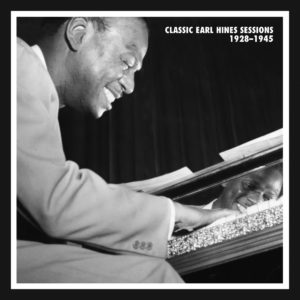
By Alan Goodman
“There are very few long-playing sides which equal the first two in this set for spirit, drive, swing, bristling ensembles and infectious solos. And right up until 1947, Hines inspired terrific esprit de corps in his bands. Willie Cook has told how he and Benny Green were so reluctant to leave that they turned down a better offer from another leader.” – Stanley Dance, review of 2 LP Bluebird release included in the Mosaic set
Earl Hines
The Most Influential Jazz Pianist. Ever!
Schools need teachers. Traditions require rules. Movements need leaders — someone has to first say, “Follow me. Here’s how it’s done.” There are only a few names in jazz we can count among those teachers. The true originals. One the most important is Earl Hines.
For the first time ever his important work as a leader and soloist spanning 1928 to 1945 are brought together. This unprecedented collection draws from all the important labels that recorded him — OKeh, Victor, Brunswick, Vocalion, Bluebird and Signature. And to our delight, as we combed through the vault at Sony where all these masters now reside, we discovered 11 tracks that have never appeared anywhere.
Not only do the songs reveal how strikingly new his concept was when he first burst on the scene, but how it developed across his solo work, with duos and trios, small combos, and his big band.
Freedom From Rhythm
Hines taught piano players how to break free from that and play what we now call jazz. In the bass notes, the hand could walk and jump, chord, and hold notes longer than expected to play against expected time. With the right hand, he could belt out solos like a wind player (hence, the moniker “trumpet-style” to describe Hines’ sense of melody), often playing in octaves, or weave intricate lines across the keyboard.
On the surface, all that freedom might sound like it has to exist apart from other musicians, but the fact is Hines’ stylistic innovations allowed ensemble work to flourish. Pianists could accompany or lead; embellish a statement, or kick off a new thought. With freedom from strictly composed rhythmic and melodic patterns came the opportunity for dialogue and response in the moment – the essence of spontaneous composition.
Fame Takes Hold
Hines launched his own band in 1928 in Chicago, and stayed in the same club (The Grand Terrace) for 10 years. But he became nationally known, as did many of the stand-out solo musicians he helped introduce. Sarah Vaughan, Dizzy Gillespie, Charlie Parker and Hines’ featured vocalist Billy Eckstine all made names for themselves first with Hines. (Sadly, no recordings were made when Parker and Gillespie were beside him).
Our collection features a wealth of Hines solos on ensemble selections, as well as over a dozen piano solo recordings. Included are “Rosetta,” “A Monday Date,” “Melancholy Baby,” and more. From his Chicago orchestra we’re treated to “Cavernism,” “Take It Easy,” “Madhouse,” and “Rhythm Sundae.” There are the hits as well – “Boogie Woogie On St. Louis Blues,” “Jelly, Jelly,” “Stormy Monday Blues,” and the sensational “Skylark.”
A Wealth Of Material, All From Original Sources
The set includes 171 tracks on seven CDs, remastered from the original metal parts and test pressings housed in the Sony archive. Rare photos from the collection of Stanley Dance and an essay by Brian Priestley are featured in our patented Mosaic booklet, along with a discography that corrects time worn errors.
For the influence he had on successive generations of piano players, Hines’ contributions have long been felt. Now, in a way never before possible, they can be directly appreciated.
Earl Hines & His Orchestra
Grand Piano Blues
Shirley Clay, George Mitchell (tp), Billy Franklin (tb, vcl), Toby Turner (cl, as), Cecil Irwin (cl, ts), Lester Boone (cl, as, bari), Earl Hines (p, vcl), Claude Roberts (bjo), Hayes Alvis (tu, vcl, arr), Benny Washington (d, vib), Alex Hill (arr) – October 25, 1929
The February flurry of studio activity for Victor had only one follow-up, doubtless because it was a mere four days before the so-called “Black Tuesday” signalling the Wall Street Crash, an event that put “paid in full” to the recording careers of most black artists except for Armstrong, Bessie Smith and Victor stablemates Jelly Roll Morton and Bennie Moten.
Former Moten sideman Mitchell is heard at his best on Grand Piano Blues, while Clay may take over the lead in the closing chorus. Interestingly, as well as being honored in the title, Hines himself gets longer solos on the two issued tracks from this session. – Brian Priestley
For the purposes of this discography, only the first issue number of each matrix is listed.
To the best of our knowledge, this discography is presented in the order in which each take was recorded. However, the CDs contained in this set are sequenced with the master take first and then any alternates at the conclusion of the disc.
Any sides that have been shown in discographies but are missing from the vaults or possibly in private collections are listed as unissued, master no longer exists. If a second title is shown in brackets, this designates an alternate or more commonly known title yet is not printed on the original label.
The following reference materials used for this discography were The Jazz Discography by Tom Lord (Cadence Jazz Books), Jazz Records 1897-1942 (Fifth Edition) by Brian Rust (Storyville) and The World Of Earl Hines (Charles Scribner’s Sons) by Stanley Dance. Further research was then compiled by Scott Wenzel and Brian Priestley.
Label Abbreviations: BB for Bluebird, Br for Brunswick, Col for Columbia, HMV for His Master’s Voice, JA for Jazz Archives; OK for OKeh, RT for Raretone, RCA Vic for RCA Victor, Sig for Signature, Vic for Victor and Voc for Vocalion.
Country Codes: (E) for England, (F) for France, (G) for Germany and (It) for Italy.
________________________________________________________________________
(A) EARL HINES: piano solos.
Chicago, December 11, 1928
w 402210-C Caution Blues [Blues In Thirds] OK 8832
w 402211-A A Monday Date –
Note: Prior discographies have listed December 9, 1928 for this session, however, the OKeh file cards show the above date. A Lillie Delk Christian session with Hines as accompanist also was recorded on the same day. ________________________________________________________________________
(B) EARL HINES: piano solos.
Chicago, December 12, 1928
w 402218-A I Ain’t Got Nobody
And Nobody Cares For Me OK 8653
w 402220-A 57 Varieties –
Earl Hines (p), Red McKenzie (vcl).
w 402221-A, B Baby Won’t You
Please Come Home unissued, master no longer exists
Note: Discographies have shown that two other titles come from this session; I Ain’t Gonna Give Nobody None O’ This Jelly Roll With The Matrix w 402216 and Baby, Won’t You Please Come Home? Carrying The Matrix w 402217. However, the OKeh file cards for matrices w 402215, w 402216, w 402217 and w 402219 are missing and possibly were never allocated. What has been located are cards for matrix w 402221 (shown above) and matrix w 402222 I Ain’t Gonna Give Nobody None O’ This Jelly Roll (also with a Red McKenzie vocal) which comes from a Bud Freeman OKeh session of December 3, 1928.
Some discographies list 57 Varieties as being matrix W 402219.
________________________________________________________________________
(C) EARL HINES AND HIS ORCHESTRA: Shirley Clay, George Mitchell (tp), Billy Franklin (tb, vcl), Toby Turner (cl, as), Cecil Irwin (cl, ts), Lester Boone (cl, as, bari), Earl Hines (p, vcl), Claude Roberts (bjo), Hayes Alvis (tu, vcl, arr), Benny Washington (d, vib), Alex Hill (arr).
Chicago, February 13, 1929
Supervised by Leroy Shield
BVE 48883-2 Sweet Ella May (BF-vcl) RT (It) RTR 24003 (LP)
BVE 48883-3 Sweet Ella May (BF-vcl) Vic 22842
BVE 48884-1 Everybody Loves My Baby (EH-vcl) RT (It) RTR 24003 (LP)
BVE 48884-2 Everybody Loves My Baby (EH-vcl) –
BVE 48884-3 Everybody Loves My Baby (EH-vcl) Vic V-38042
Note: The reverse side of Victor 22842 shown above is by Tiny Parham and his Musicians.
Although not confirmed, it has been suggested that the arrangements for the next few sessions (unless where noted) were written by Cecil Irwin.
________________________________________________________________________
(D) EARL HINES AND HIS ORCHESTRA: Same as (C).
Chicago, February 14, 1929
Supervised by Leroy Shield
BVE 48885-2 Good Little, Bad Little You (BF-vcl) RT (It) RTR 24003 (LP)
BVE 48885-3 Good Little, Bad Little You (HA-vcl) Vic V-38043
BVE 48886-3 Have You Ever Felt That Way (EH-vcl) Vic V-38048
Note: There is a metal part for Good Little, Bad Little You that shows the take as -1R, however, this is a dub of -3 used for reissue on Bluebird B-7768 (78).
Some discographies show that matrix BVE 48885-2 appeared on Victor V-38043, however this has not yet been confirmed.
The reverse side of Victor V-38048 shown above is by Bennie Moten’s Kansas City Orchestra.
________________________________________________________________________
(E) EARL HINES AND HIS ORCHESTRA: Same as (C) except add an unidentified guitarist (it is not Claude Roberts who is heard on banjo).
Chicago, February 15, 1929
Supervised by Leroy Shield
BVE 48887-1 Beau-Koo Jack (AH-arr) RT (It) RTR 24003 (LP)
BVE 48887-2 Beau-Koo Jack (AH-arr) Vic V-38043
BVE 48887-3 Beau-Koo Jack (AH-arr) unissued
BVE 48888-1 Sister Kate (EH-vcl) Meritt 19 (LP)
BVE 48888-2 Sister Kate (EH-vcl) previously unissued
BVE 48888-3 Sister Kate (EH-vcl) Vic 22683
Note: The reverse side of Victor 22683 shown above is by McKinney’s Cotton Pickers.
An unissued take of Beau-Koo Jack (BVE 48887-3) exists but it differs little from -1 and -2 and therefore is not included in this package.
________________________________________________________________________
(F) EARL HINES AND HIS ORCHESTRA: Same as (C).
Chicago, February 22, 1929
Supervised by Leroy Shield
BVE 50509-1,2,3 She’s Funny That Way (EH-vcl) unissued, master no longer exists
BVE 50510-1,2,3 Mississippi, Here I Am (EH-vcl) –
BVE 50511-1 Chicago Rhythm RT (It) RTR 24003 (LP)
BVE 50511-2 Chicago Rhythm Vic V-38042
BVE 50512-1,2,3 It’s A Precious Little
Thing Called Love (EH-vcl) unissued, master no longer exists
Note: According to the Victor logs, the unissued sides contain only one trumpet, one clarinet and Hines.
________________________________________________________________________
(G) EARL HINES: piano solos.
Chicago, February 25, 1929
Supervised by Leroy Shield
BVE 50527-1,2,3 I’m Looking For That
Certain Man To Love unissued, master no longer exists
BVE 50528-1 Glad Rag Doll “X” LVA 3023 (LP)
BVE 50528-2 Glad Rag Doll BB B-10555
Note: According to the Victor logs, the unissued side is by the full orchestra.
________________________________________________________________________
(H) EARL HINES AND HIS ORCHESTRA: Same as (C).
Chicago, October 25, 1929
Supervised by Ralph Peer
BVE 57322-2 Grand Piano Blues Vic V-38096
BVE 57323-1,2,3 Times Ain’t What
They Used To Be unissued, master no longer exists
BVE 57324-1,2,3 Trying –
BVE 57325-2 Blue Nights (HA-arr) Vic V-38096
Note: There are metal parts of both Grand Piano Blues and Blue Nights that show the take as -1R. However, these are not true alternate takes but dubs of -2 used for later reissue on 78 (Bluebird B-6744).
________________________________________________________________________
(I) EARL HINES AND HIS ORCHESTRA: Charlie Allen, George Dixon (tp), Walter Fuller (tp, vcl), Billy Franklin, Louis Taylor (tb), Omer Simeon (cl, as, bari), Darnell Howard (cl, as), Cecil Irwin (cl, ts), Earl Hines (p), Lawrence Dixon (g), Quinn Wilson (b), Wallace Bishop (d), Reginald Foresythe, Henri Woode (arr).
NYC, June 28, 1932
Supervised by Jack Kapp or Victor Young
B-11990-A Oh! You Sweet Thing (WF-vcl) unissued, master no longer exists
B-11991-A Oh! You Sweet Thing –
B-11992-A Blue Drag (HW-arr) Time-Life STLJ11 (LP)
B-11993-B Deep Forest (RF-arr) unissued
B-11993-A Deep Forest (RF-arr) Br (E) 1464
Note: An unissued take of Deep Forest (B-11993-B) exists but it differs little from -A and therefore is not included in this package.
________________________________________________________________________
(J) EARL HINES & HIS ORCHESTRA: Same as (I) -1 / EARL HINES: piano solos -2
NYC, July 14, 1932
Supervised by Jack Kapp or Victor Young
B-12074-A Oh! You Sweet Thing -1 Br 6345
B-12075-B Blue Drag (HW-arr) -1 JA 2 (LP)
B-12075-A Blue Drag (HW-arr) -1 Br 6345
TO-1181 I Love You Because
I Love You (WF-vcl) (HW-arr) -1 previously unissued
B-12076-B I Love You Because
I Love You (WF-vcl) (HW-arr) -1 –
B-12076-A I Love You Because
I Love You (WF-vcl) (HW-arr) -1 Br 6379
B-12077-B I Love You Because
I Love You (HW-arr) -1 JA 2 (LP)
B-12077-A I Love You Because
I Love You (HW-arr) -1 –
B-12078-B Sensational Mood (HW-arr) -1 –
B-12078-A Sensational Mood (HW-arr) -1 Br 6379
TO-1182 My One Ambition Is You (WF-vcl) -1 Hep (E) 1003 (CD)
B-12079-C Love Me Tonight -2 Col 35877
B-12079-B Love Me Tonight -2 JA 2 (LP)
B-12079-A Love Me Tonight -2 Br 6403
B-12080-B Down Among The Sheltering Palms -2 Col 35877
B-12080-A Down Among The Sheltering Palms -2 Br 6403
Note: It’s not certain when TO-1181 and TO-1182 were recorded, however the Brunswick file card states the “Lab Date” as July 14, 1932 and that the two sides were “Recording room tests on 33 1/3 R.P.M.”.
________________________________________________________________________
(K) EARL HINES AND HIS ORCHESTRA: Charlie Allen, George Dixon (tp), Walter Fuller (tp, vcl), Billy Franklin (tb), Louis Taylor (tb, arr), Omer Simeon (as, bari), Darnell Howard (cl, as, vln), Cecil Irwin, Jimmy Mundy (ts, arr), Earl Hines (p), Lawrence Dixon (g, arr), Quinn Wilson (b, tu, arr), Wallace Bishop (d), Valaida Snow (vcl).
NYC, February 13, 1933
Supervised by Jack Kapp or Victor Young
B-13060-C Rosetta (CI-arr) previously unissued ?
B-13060-A Rosetta (CI-arr) Col 35878
B-13060-D Rosetta (WF-vcl) (CI-arr) previously unissued ?
B-13060-B Rosetta (WF-vcl) (CI-arr) Br 6541
B-13061-B Why Must We Part? (LT-arr) JA 2 (LP)
B-13061-A Why Must We Part? (LT-arr) Br (G) A9407
B-13062-B Maybe I’m To Blame (VS-vcl) (LD-arr) JA 2 (LP)
B-13062-A Maybe I’m To Blame (VS-vcl) (LD-arr) Br (G) A9407
B-13063-B Cavernism (JM-arr) JA 2 (LP)
B-13063-A Cavernism (JM-arr) Br 6541
Note: It has also been suggested that Henri Woode and Earl Hines are the arrangers for Rosetta.
It has not been confirmed that matrix B-13060-C appeared on Columbia 35878 and B-13060-D on Brunswick 6541 as is stated in some discographies. In addition, the German Brunswick A9407 has not been visually checked either.
The Epic LP Hines Rhythm (EE 22021) incorrectly states that the Rosetta used is the -B take (-A is the take used).
________________________________________________________________________
(L) EARL HINES AND HIS ORCHESTRA: Same as (K) except add Trummy Young (tb).
Chicago, October 27, 1933
C-643-1 Take It Easy (JM-arr) Br 6771
C-644-2 Harlem Lament (QW-arr) previously unissued
C-644-1 Harlem Lament (QW-arr) Br 6771
C-645-1 Bubbling Over (JM-arr) Br 6710
C-646-1 I Want A Lot Of Love (LD or JM-arr) –
________________________________________________________________________
(M) EARL HINES AND HIS ORCHESTRA: Charlie Allen (tp), George Dixon (tp, bari, arr), Walter Fuller (tp, vcl), Billy Franklin, Louis Taylor, Trummy Young (tb), Omer Simeon (as), Darnell Howard (cl, as), Cecil Irwin (ts, arr), Jimmy Mundy (ts, arr), Earl Hines (p), Lawrence Dixon (g, arr), Quinn Wilson (tu, arr), Wallace Bishop (d, vib), Herb Jeffries (on label as “Herbie Jeffrey”) (vcl).
NYC, March 26, 1934
B-15000-A Just To Be In Caroline (HJ-vcl) (LD-arr) Br 6960
B-15001-A We Found Romance (WF-vcl) (CI-arr) –
B-15002-A Blue [Blue Because Of You]
(HJ-vcl) (QW-arr) Br 6872
B-15003-A Madhouse (JM-arr) Voc 3379
Note: The LP Earl Hines and His Orchestra (1932-1934 and 1937) issued on Jazz Archives 2 includes -C pressings for Just To Be In Caroline, We Found Romance and Blue. However, these are not true alternate takes but dubs of the master -A.
________________________________________________________________________
(N) EARL HINES AND HIS ORCHESTRA: Same as (M) except Simeon doubles on clarinet.
NYC, March 27, 1934
B-15006-A Julia (WF-vcl) (GD-arr) Br 6872
B-15007-A Darkness Voc 3379
B-15008-A You Are The One
Of My Dreams (WF-vcl) (CI-arr) Voc 3392
B-15009-A Swingin’ Down –
Note: Although matrices B-15004 and B-15005 intervene numerically between Sessions (M) and (N), they were assigned to Arthur Tracy and recorded on March 28th.
The LP Earl Hines and His Orchestra (1932-1934 and 1937) issued on Jazz Archives 2 includes a -C for Julia. However, this is not a true alternate take but a dub of the master take -A.
________________________________________________________________________
(O) EARL HINES AND HIS ORCHESTRA: Milton Fletcher, Charlie Allen, Walter Fuller (tp), Louis Taylor, Trummy Young, Ken Stewart (tb), Omer Simeon, Darnell Howard (cl, as), Willie Randall (cl, ts), Budd Johnson (ts), Earl Hines (p), Lawrence Dixon (g), Quinn Wilson (b), Wallace Bishop (d), Ida James (vcl), Cecil Irwin, Jimmy Mundy (arr).
Chicago, February 10, 1937
C-1814-1 Flany Doodle Swing (head arr) Voc 3501
C-1815-2 Pianology (head arr) –
C-1816-2 Rhythm Sundae (CI-arr) previously unissued
C-1816-1 Rhythm Sundae (CI-arr) Voc 3467
C-1817-2 Inspiration (JM-arr) Voc 3586
C-1818-2 I Can’t Believe That You’re
In Love With Me (IJ-vcl) Voc 3467
EARL HINES QUARTET: Omer Simeon (cl), Budd Johnson (ts), Earl Hines (p), Wallace Bishop (d).
Same session
C-1819-2 Honeysuckle Rose previously unissued
C-1819-1 Honeysuckle Rose Voc 3586
________________________________________________________________________
(P) EARL HINES AND HIS ORCHESTRA: Leon Scott, Ray Nance (tp) George Dixon (tp, as), Louis Taylor, Ed Fant, Ken Stewart (tb), Leroy Harris (cl, as), Willie Randall (cl, as, arr), Leon Washington, poss. Ernest Williams (cl, ts), Earl Hines (p), Hurley Ramey (g), Quinn Wilson (b), Oliver Coleman (d), Ida James (vcl).
Chicago, August 10, 1937
C-1979-1 Blue Skies (IJ, band-vcl) JA 2 (LP)
C-1980-2 Hines Rhythm –
C-1980-1 Hines Rhythm Epic LN 3223 (LP)
C-1981-2 Rhythm Rhapsody (WR-arr) Epic EE 22021 (LP)
C-1981-1 Rhythm Rhapsody (WR-arr) Col KG 30788 (LP)
C-1982-2 A Mellow Bit Of Rhythm previously unissued
C-1982-1 A Mellow Bit Of Rhythm JA 2 (LP)
C-1983-2 Ridin’ A Riff previously unissued
C-1983-1 Ridin’ A Riff Epic LN 3223 (LP)
Note: Some discographies list the personnel for this session as that of the February 10, 1937 session. However, a Down Beat article from September 1937 shows the personnel shown above as leaving for a tour on August 12th.
Jazz Archives 2 (LP) incorrectly credits Madeline Green with the vocal on Blue Skies and that the take is -2.
JA 2 also incorrectly lists that Hines Rhythm is -1 and A Mellow Bit Of Rhythm is -2.
________________________________________________________________________
(Q) EARL HINES AND HIS ORCHESTRA: Freddie Webster, Pee Wee Jackson (tp), Ray Nance (tp, vcl), George Dixon (tp, as), Louis Taylor, Ken Stewart, Joe McLewis (tb), Leroy Harris (as, vcl), Budd Johnson, Leon Washington (ts), Willie Randall (cl, ts), Earl Hines (p), Claude Roberts (g), Quinn Wilson (b, arr), Oliver Coleman (d), Ida James (vcl), Jimmy Mundy (arr). NYC, March 7, 1938
22517-2 Solid Mama (JM-arr) Epic LN 3223 (LP)
22517-1 Solid Mama (JM-arr) Voc 4143
22518-1 Please Be Kind (IJ-vcl) Voc 4008
22519-2 Goodnight, Sweet Dreams, Goodnight Epic LN 3223 (LP)
22519-1 Goodnight, Sweet Dreams, Goodnight Voc 4008
22520-1 Tippin’ At The Terrace (RN-vcl) Voc 4143
22521-1 Dominick Swing (QW-arr) Voc 4032
Note: An unissued alternate take (-2) exists for Please Be Kind but it differs little from the master take and is not included in this package.
The Epic LP Hines Rhythm (EE 22021) incorrectly states that Goodnight, Sweet Dreams, Goodnight was released on Vocalion 4008, however, the take used is -2 which was issued on Epic LN 3223 (LP).
Ray Nance is not credited with the vocal on the label of Vocalion 4143.
________________________________________________________________________
(R) EARL HINES AND HIS ORCHESTRA: Same as (Q).
NYC, March 17, 1938
22578-1 Jezebel (LH-vcl) Voc 4032
22579-1 Jack Climbed A Beanstalk (RN-vcl) Voc 4272
Note: The reverse side of Vocalion 4272 shown above is by The Skyliners.
________________________________________________________________________(S) EARL HINES AND HIS ORCHESTRA: Walter Fuller, Milton Fletcher, Ed Sims (tp), George Dixon (tp, as, bari), John Ewing, Ed Burke, Joe McLewis (tb), Omer Simeon (cl, as), Leroy Harris (as), Budd Johnson (as, ts, arr), Bob Crowder (ts), Earl Hines (p, arr), Claude Roberts (g), Quinn Wilson (b, arr), Alvin Burroughs (d), Horace Henderson, Jimmy Mundy, Skippy Williams (arr).
NYC, July 12, 1939
BS-038255-1 Indiana (HH-arr) BB B-10391
BS-038256-2 G.T. Stomp (head arr) RCA Vic LPV-512 (LP)
BS-038256-1 G.T. Stomp (head arr) BB B-10391
BS-038257-1 Ridin’ And Jivin’ (SW-arr) BB B-10351
BS-038258-1 Grand Terrace Shuffle (BJ-arr) –
BS-038259-1 Father Steps In (BJ-arr) BB B-10377
BS-038260-1 Piano Man (ens-vcl) (BJ-arr) –
________________________________________________________________________
(T) EARL HINES AND HIS ORCHESTRA: Same as (S) except Walter Fuller (tp, vcl) and add Laura Rucker (vcl).
Chicago, October 6, 1939
BS-040474-1 Riff Medley (BJ-arr) BB B-10531
BS-040475-1 Me And Columbus (LR-vcl) BB B-10467
BS-040476-1 XYZ (BJ-arr) BB B-10531
BS-040477-1 ‘Gator Swing (EH / QW-arr) BB B-10763
BS-040478-1 After All I’ve
Been To You (WF-vcl) (JM-arr) BB B-10467
BS-040479-1 Lightly And Politely (JM-arr) BB B-10727
EARL HINES: piano solo.
Same session
BS-040480-2 Rosetta unissued, master no longer exists
________________________________________________________________________
(U) EARL HINES: piano solo.
Chicago, October 21, 1939
BS-040480-4 Rosetta Meritt 4 (LP)
BS-040480-3 Rosetta BB B-10555
________________________________________________________________________
(V) EARL HINES AND HIS ORCHESTRA: Walter Fuller, Milton Fletcher, Ed Sims (tp), George Dixon (tp, as), John Ewing, Ed Burke, Joe McLewis (tb), Omer Simeon (cl, as), Leroy Harris (as), Bob Crowder, Jimmy Mundy (ts), Earl Hines (p, arr), Claude Roberts (g), Quinn Wilson (b), Alvin Burroughs (d), Billy Eckstine (vcl), Budd Johnson (arr).
NYC, February 13, 1940
BS-047055-1 Boogie Woogie On
St. Louis Blues (EH-arr) RCA Vic LPV-512 (LP)
BS-047055-2 Boogie Woogie On
St. Louis Blues (EH-arr) -1 BB B-10674
BS-047056-1 Deep Forest (BJ-arr) -1 BB B-10727
BS-047057-1 My Heart Beats For You
(BE-vcl) (BJ-arr) BB B-10763
BS-047058-1 Number 19 (BJ-arr) BB B-10674
-1 George Dixon is the one who makes the vocal interjections.
Note: Matrix BS-047058-2 is rumored to exist on RCA (F) PM 43259 (LP) and Bluebird 6750-2-RB however they both use the master take (-1).
________________________________________________________________________
(W) EARL HINES: Storytone piano solos.
NYC, February 26, 1940
BS-047700-1 Body And Soul BB B-10642
BS-047701-1 Child Of A Disordered Brain RCA (F) PM 43266 (LP)
BS-047701-2 Child Of A Disordered Brain BB B-10642
Note: A Storytone piano is an early electric piano.
The LP Classic Piano Jazz Styles (RCA Victor LPV-543) claims that BS-047700-2 was used for Body and Soul, however the master take (-1) is used.
________________________________________________________________________
(X) EARL HINES AND HIS ORCHESTRA: Walter Fuller (tp, vcl), Shirley Clay, Ed Sims (tp), George Dixon (tp, as), John Ewing, Ed Burke, Joe McLewis (tb), Omer Simeon (cl, as), Leroy Harris (as, vcl), Bob Crowder, Budd Johnson (ts, arr), Earl Hines (p), Claude Roberts (g), Quinn Wilson (b), Alvin Burroughs (d), Billy Eckstine (vcl), Edgar Battle, Buster Harding, Jimmy Mundy (arr).
NYC, June 19, 1940
BS-051521-1 Wait Til It Happens To You
(BE-vcl) (poss. RC-arr) BB B-10985
BS-051522-1 Call Me Happy (BH-arr) BB B-10835
BS-051523-1 Ann (BE-vcl) (BJ-arr) BB B-10870
BS-051524-1 Topsy Turvy (WF-vcl) (EB-arr) –
BS-051525-1 Blue Because Of You (LH-vcl) (BJ-arr) BB B-10835
BS-051526-1 You Can Depend On Me
(WF-vcl) (JM or BJ-arr) RCA Vic LPV-512 (LP)
BS-051526-2 You Can Depend On Me
(WF-vcl) (JM or BJ-arr) BB B-10985
BS-051527-1 Tantalizing A Cuban (BJ-arr) -1 HMV (F) K9171
BS-051527-2 Tantalizing A Cuban (BJ-arr) -1 BB B-10792
-1 Vocal interjections by George Dixon.
Note: Although Eckstine sings “Wait Til This Happens To You” the title shown on the 78 is Wait Till It Happens To You. No other confirmation on the title comes from either ASCAP or BMI.
It has not been confirmed that BS-051527-1 appeared on La Voix de Son Maitre (His Master’s Voice) (F) K9171 (78).
________________________________________________________________________
(Y) SIDNEY BECHET TRIO: Sidney Bechet (cl), Earl Hines (p), Baby Dodds (d).
Chicago, September 6, 1940
Supervised by Leonard Joy
BS-053431-2 Blues In Thirds [Caution Blues] Vic 27204
SIDNEY BECHET AND HIS NEW ORLEANS FEETWARMERS: Rex Stewart (cor), Sidney Bechet (cl, ss), Earl Hines (p), Johnny Lindsay (b), Baby Dodds (d), Herb Jeffries (vcl).
Same session
BS-053432-2 Blues For You, Johnny BB AXM2-5516 (LP)
BS-053432-1 Blues For You, Johnny (HJ-vcl) Vic 26746
BS-053433-1 Ain’t Misbehavin’ RCA Vic LPV-535 (LP)
BS-053433-2 Ain’t Misbehavin’ Vic 26746
BS-053434-1 Save It, Pretty Mama Vic 27240
BS-053435-1 Stompy Jones –
Note: The reverse side of Victor 27204 shown above is by Sidney Bechet and his New Orleans Feetwarmers and does not include Hines.
Although it is on the label as Blues For You, Johnny, Jeffries sings “Blue For You, Johnny”.
The beginning of Stompy Jones is cut due to either a faulty trimming of the outer portion of the master disc or the delay in a mute button being disengaged by the engineer. All commercial releases have this very slight cut.
________________________________________________________________________
(Z) EARL HINES AND HIS ORCHESTRA: Pee Wee Jackson, Rostelle Reese, Leroy White (tp), John Ewing, Ed Fant, Joe McLewis (tb), Leroy Harris (as), Scoops Carry (cl, as), Willie Randall (ts), Budd Johnson (cl, ts, arr), Franz Jackson (ts, arr), Earl Hines (p), Hurley Ramey (g, pedal steel-g), Truck Parham (b), Alvin Burroughs (d), Billy Eckstine, Madeline Green, The Three Varieties (Randall, Harris, Johnson) (vcl), Bingie Madison, Mort Maser, Jimmy Mundy (arr).
Hollywood, December 2, 1940
Possibly supervised by Harry Meyerson
BS-055175-1 Easy Rhythm (JM-arr) BB B-10985
BS-055176-1 In Swamp Lands (BM-arr) BB B-11036
BS-055177-1 I’m Falling For You (BE-vcl) (BJ-arr) BB B-11065
BS-055178-1 Everything Depends
On You (MG, TTV-vcl) (MM-arr) BB B-11036
BS-055179-1 Comin’ In Home (FJ-arr) BB B-11199
BS-055180-1 Jelly, Jelly (BE-vcl) (head arr) BB B-11065
________________________________________________________________________
(AA) EARL HINES AND HIS ORCHESTRA: Pee Wee Jackson, Tommy Enoch, Benny Harris, George Dixon (tp), George Hunt, Ed Fant, Joe McLewis (tb), Leroy Harris, Scoops Carry (cl, as), Willie Randall (ts), Franz Jackson, Budd Johnson (ts, arr), Earl Hines (p), Hurley Ramey (g), Truck Parham (b), Rudy Traylor (d), Billy Eckstine, Madeline Green, The Three Varieties (Randall, Harris, Johnson) (vcl), Mort Maser, Jimmy Mundy (arr).
NYC, April 3, 1941
BS-063328-2 Up Jumped The Devil (JM-arr) previously unissued
BS-063328-1 Up Jumped The Devil (JM-arr) BB B-11237
BS-063329-1 Sally, Won’t You Come Back
(MG, TTV-vcl) (MM-arr) BB B-11126
BS-063330-1 Jersey Bounce (JM-arr) –
BS-063331-1 Julia (BE-vcl) (BJ-arr) BB B-11199
BS-063332-1 Southside (FJ-arr) BB B-11237
EARL HINES: piano solos.
Same session
BS-063333-1 On The Sunny Side Of The Street “X” LVA 3023 (LP)
BS-063333-2 On The Sunny Side Of The Street Vic 27562
BS-063334-2 My Melancholy Baby “X” LVA 3023 (LP)
BS-063334-1 My Melancholy Baby Vic 27562
________________________________________________________________________
(BB) EARL HINES AND HIS ORCHESTRA: Pee Wee Jackson, Tommy Enoch, Freddie Webster, George Dixon (tp), John Ewing, George Hunt, Joe McLewis (tb), Leroy Harris (as, vcl), Scoops Carry (cl, as), Willie Randall (ts), Budd Johnson, Franz Jackson (ts, arr), Earl Hines (p), Hurley Ramey (g), Truck Parham (b), Rudy Traylor (d), Billy Eckstine, Madeline Green, The Three Varieties (Randall, Harris, Johnson) (vcl), Eddie Durham, Buster Harding, Mort Maser (arr).
Hollywood, August 20, 1941
PBS-061540-1 It Had To Be You (MG, TTV-vcl) (MM-arr) BB B-11308
PBS-061541-1 Windy City Jive (BH-arr) BB B-11329
PBS-061542-1 Straight To Love (LH-vcl) BB B-11374
PBS-061543-1 Water Boy (BE-vcl) (BJ-arr) BB B-11329
PBS-061544-1 Swingin’ On C (ED-arr) BB B-11465
PBS-061545-1 Yellow Fire (FJ-arr) BB B-11308
Note: Water Boy has been noted as an arrangement by Avery Robinson but his was a copyrighted arrangement done for Paul Robeson in 1925 and not for Hines.
Swingin’ On C has been listed in discographies as being an Eddie Durham arrangement. However, it differs from the chart he wrote on this tune for the Jimmie Lunceford Orchestra.
________________________________________________________________________
(CC) EARL HINES AND HIS ORCHESTRA: Same as (BB) except Jesse Miller (tp) replaces Webster, George Dixon doubles on bari and Nat Atkinson (tb) replaces Ewing.
Chicago, October 28, 1941
BS-070332-1 Somehow (BE-vcl) (BJ-arr) BB B-11432
BS-070333-2 I Got It Bad And That
Ain’t Good (BE, MG, TTV-vcl) Time-Life STBB 18 (LP)
BS-070333-1 I Got It Bad And That
Ain’t Good (BE, MG, TTV-vcl) BB B-11374
BS-070334-2 I Never Dreamt (You’d Fall In
Love With Me) (MG, TTV-vcl) unissued
BS-070334-1 I Never Dreamt (You’d Fall In
Love With Me) (MG, TTV-vcl) BB B-11465
BS-070335-2 The Father Jumps (head arr) previously unissued
BS-070335-1 The Father Jumps (head arr) BB B-11535
Note: There are alternate takes (-2) of matrices BS-070333 (issued on the LP boxed set On The Road by Time-Life STBB 18) and BS-070334, however they offer very little variation than the master take (-1) and therefore are not included in this package.
________________________________________________________________________
(DD) EARL HINES AND HIS ORCHESTRA: Pee Wee Jackson, Tommy Enoch, Jesse Miller (tp), George Dixon (tp, bari), George Hunt, Joe McLewis (tb), Gerald Valentine (tb, arr), Leroy Harris, Scoops Carry (as), Willie Randall (ts), Bob Crowder, Budd Johnson (ts, arr), Earl Hines (p), Hurley Ramey (g), Truck Parham (b), Rudy Traylor (d), Billy Eckstine, Madeline Green, The Three Varieties (Randall, Harris, Johnson) (vcl).
NYC, November 17, 1941
BS-068400-1 The Boy With
The Wistful Eyes (MG, TTV-vcl) BB B-11394
BS-068401-1 The Jitney Man (BE-vcl) (GV-arr) BB B-11535
BS-068402-1 The Earl BB B-11432
BS-068403-2 You Don’t Know What Love Is
(BE-vcl) (BJ-arr) unissued
BS-068403-1 You Don’t Know What Love Is
(BE-vcl) (BJ-arr) BB B-11394
Note: There is an alternate take of BS-068403 (-2) but it is not included in this package.
Although some discographies list Mel Powell as arranger for The Earl it has not been confirmed that this is his chart which is different from the Powell arrangement for Benny Goodman.
________________________________________________________________________
(EE) EARL HINES AND HIS ORCHESTRA: Same as (DD) except Shorty McConnell (tp) replaces Enoch, Scoops Carey (as, fl) and Skeeter Best (g, el-g) replaces Ramey.
NYC, March 19, 1942
Supervised by Steve Sholes
BS-073459-1 She’ll Always Remember (MG, TTV-vcl) BB B-11512
BS-073460-1 Skylark (BE-vcl) (BJ-arr) –
BS-073461-1 Second Balcony Jump (GV-arr) BB B-11567
BS-073462-1 Stormy Monday Blues (BE-vcl) (RC-arr) –
________________________________________________________________________
(FF) EARL HINES TRIO: Earl Hines (p), Al Casey (el-g), Oscar Pettiford (b).
NYC, February 26, 1944
Supervised by Leonard Feather
F1000 My Fate Is In Your Hands Sig 28110
F1001 I’ve Got A Feeling I’m Falling Sig 28109
F1002 Honeysuckle Rose Sig 28110
F1003 Squeeze Me Sig 28109
________________________________________________________________________
(GG) EARL HINES AND HIS ORCHESTRA: Palmer Davis, Billy Douglas, Willie Cook (tp), Arthur Walker (tp, vcl), Druie Bess, Walter Harris, Gus Chappell, Cliff Smalls (tb), Scoops Carry (cl, as), Lloyd Smith (as), Wardell Gray, Kermit Scott (ts), John Williams (bari), Earl Hines (p), Rene Hall (el-g, arr), Gene Thomas (b), Chick Booth (d), The Mello-Tones (Reuben Saunders, Arthur Rainwater [aka Artie Waters], Harold McEwen, Gene Billbrew) (vcl).
NYC, January 12, 1945
D5VB-34-1 Scoops-Carry’s-Merry (RH-arr) BB AXM2-5508 (LP)
D5VB-35-1 Satchel Mouth Baby (TMT-vcl) (poss. RH-arr) previously unissued
D5VB-36-1 Furlough Blues (AW-vcl) (RH-arr) BB AXM2-5508 (LP)
Note: Some discographies list Rene Hall as doubling on trombone. The original RCA Victor file card lists the personnel and instrumentation as shown above.
________________________________________________________________________
Album Index
78 album
Columbia C-41 (35877, 35878) Earl Hines – Hot Jazz Classics
Signature SI-1 (28109, 28110) Earl Hines Trio / Nat Jaffe –
Fats Waller Memorial
Victor P-75 (27562) Various Artists – Hot Piano
10” LP
“X” LVA 3023 Earl Hines – Earl Hines Piano Solos
12” LP
Bluebird AXM2-5508 Earl Hines – The Father Jumps
Bluebird AXM2-5516 Sidney Bechet – Master Musician
Columbia KG 30788 Various Artists – Stars Of The Apollo Theater
Epic LN 3223 Earl Hines – Oh, Father
Epic EE 22021 Earl Hines – Hines Rhythm
Jazz Archives 2 Earl Hines And His Orchestra (1932-1934 and
1937)
Meritt 4 Various Artists – The Piano Album
Meritt 19 Various Artists – Jazz Potpourri, Louis Armstrong Plus
20 Collector Items 1924-1940
Raretone RTR 24003 Earl Hines – 1929
RCA Victor LPV 512 Earl Hines – The Grand Terrace Band
RCA Victor LPV 535 Sidney Bechet – The Blue Bechet
RCA (F) 43266 Earl Hines – The Indispensable Earl Hines Vol. 3/4
(1939-1945)
Time-Life STLJ11 Earl Hines – Giants Of Jazz
CD
Hep (E) 1003 Earl Hines – Swingin’ Down
Produced for release by Scott Wenzel
Excutive Producer: Michael Cuscuna
Transfers, sound restoration and mastering by Andreas Meyer (www.meyer-media.com)
24 bit technology was utilized at all stages of the production of this Mosaic release.
Special thanks: Michael Brooks, Tad Hershorn, The Institute of Jazz Studies at Rutgers, Dan Morgenstern, Michael Panico, Vincent Pelote, Brian Priestley, Loren Schoenberg, Tom Tierney.
78s provided by: Michael Brooks, The Institute of Jazz Studies, Steven Lasker and Scott Wenzel.
Design Production: InkWell, Inc.
Vault research: Anthony Fountain and Scott Wenzel
Producer’s Note:
The vision of this set on Earl Hines centers around the sessions under his leadership for labels now owned by Sony Music during the years 1928-1945, the exception being the Sidney Bechet Victor session from September 6, 1940.
The sound quality will differ from track to track due to the use of metal parts, vinyl test pressings, shellac 78s and LPs. However, some specific problems beyond our control include the following: On BVE 50528-1 (Glad Rag Doll) and BS-038258-1 (Grand Terrace Shuffle) a “swish” on the test pressings provided could not be fully eliminated and there are some speed variations at the start of TO-1181 (I Love You Because I Love You).
As noted in other Mosaic boxed sets that contain sources from metal parts, the master take is seldom the first but instead usually the last take recorded. For the majority of these sessions the initial release would be the -A or -1 take, while a -B or -2 take would become the second or alternate choice for release on the originally issued 78. In some of the earlier Victor sessions the master take turned out to be the higher take, so this is not an exact science. Nonetheless we have made every effort to try and approximate the original recording sequence.
Scott Wenzel
This compilation (p) 2012 SONY MUSIC ENTERTAINMENT / Manufactured by SONY MUSIC ENTERTAINMENT, 550 Madison Avenue, New York, NY 10022-3211/WARNING All Rights Reserved. Unauthorized duplication is a violation of applicable laws.
© 2012 Mosaic Records L.L.C., 425 Fairfield Ave., Suite 421, Stamford, CT 06902. All rights reserved.
Phone: 203-327-7111/Fax 203-323-3526/ Website: www.mosaicrecords.com.
SOURCE LIST
The following source material was used for this release: P refers to a positive (clockwise spinning) metal part while N refers to a negative (counterclockwise spinning) metal part. T refers to a vinyl test pressing. All other sources come from the original 78s unless otherwise noted and are identified by their label and catalog number.
________________________________________________________________________
(A) EARL HINES
w 402210-C Caution Blues OK 8832
w 402211-A A Monday Date OK 8832
________________________________________________________________________
(B) EARL HINES
w 402218-A I Ain’t Got Nobody OK 8653
w 402220-A 57 Varieties OK 8653
________________________________________________________________________
(C) EARL HINES AND HIS ORCHESTRA
BVE 48883-2 Sweet Ella May T
BVE 48883-3 Sweet Ella May T
BVE 48884-1 Everybody Loves My Baby T
BVE 48884-2 Everybody Loves My Baby T
BVE 48884-3 Everybody Loves My Baby T
________________________________________________________________________
(D) EARL HINES AND HIS ORCHESTRA
BVE 48885-2 Good Little, Bad Little You N
BVE 48885-3 Good Little, Bad Little You T
BVE 48886-3 Have You Ever Felt That Way T
________________________________________________________________________
(E) EARL HINES AND HIS ORCHESTRA
BVE 48887-1 Beau-Koo Jack T
BVE 48887-2 Beau-Koo Jack T
BVE 48888-1 Sister Kate N
BVE 48888-2 Sister Kate T
BVE 48888-3 Sister Kate T
________________________________________________________________________
(F) EARL HINES AND HIS ORCHESTRA
BVE 50511-1 Chicago Rhythm T
BVE 50511-2 Chicago Rhythm T
________________________________________________________________________
(G) EARL HINES
BVE 50528-1 Glad Rag Doll T
BVE 50528-2 Glad Rag Doll T
________________________________________________________________________
(H) EARL HINES AND HIS ORCHESTRA
BVE 57322-2 Grand Piano Blues T
BVE 57325-2 Blue Nights T
________________________________________________________________________
(I) EARL HINES AND HIS ORCHESTRA
B-11992-A Blue Drag P
B-11993-A Deep Forest N
________________________________________________________________________
(J) EARL HINES & HIS ORCHESTRA / EARL HINES
B-12074-A Oh! You Sweet Thing N
B-12075-B Blue Drag N
B-12075-A Blue Drag N
TO-1181 I Love You Because I Love You T
B-12076-B I Love You Because I Love You T
B-12076-A I Love You Because I Love You Br 6379
B-12077-B I Love You Because I Love You N
B-12077-A I Love You Because I Love You N
B-12078-B Sensational Mood N
B-12078-A Sensational Mood Br 6379
TO-1182 My One Ambition Is You T
B-12079-C Love Me Tonight N
B-12079-B Love Me Tonight JA 2 (LP)
B-12079-A Love Me Tonight N
B-12080-B Down Among The Sheltering Palms N
B-12080-A Down Among The Sheltering Palms N
________________________________________________________________________
(K) EARL HINES AND HIS ORCHESTRA
B-13060-C Rosetta T
B-13060-A Rosetta T
B-13060-D Rosetta T
B-13060-B Rosetta T
B-13061-B Why Must We Part? N
B-13061-A Why Must We Part? N
B-13062-B Maybe I’m To Blame N
B-13062-A Maybe I’m To Blame N
B-13063-B Cavernism P
B-13063-A Cavernism N
________________________________________________________________________
(L) EARL HINES AND HIS ORCHESTRA
C-643-1 Take It Easy Br 6771
C-644-2 Harlem Lament N
C-644-1 Harlem Lament P
C-645-1 Bubbling Over N
C-646-1 I Want A Lot Of Love Br (E) 01682
________________________________________________________________________
(M) EARL HINES AND HIS ORCHESTRA
B-15000-A Just To Be In Caroline T
B-15001-A We Found Romance T
B-15002-A Blue [Blue Because Of You] N
B-15003-A Madhouse T
________________________________________________________________________
(N) EARL HINES AND HIS ORCHESTRA
B-15006-A Julia N
B-15007-A Darkness T
B-15008-A You Are The One Of My Dreams Voc 3392
B-15009-A Swingin’ Down Voc 3392
________________________________________________________________________
(O) EARL HINES AND HIS ORCHESTRA / EARL HINES QUARTET
C-1814-1 Flany Doodle Swing P
C-1815-2 Pianology N
C-1816-2 Rhythm Sundae T
C-1816-1 Rhythm Sundae P
C-1817-2 Inspiration P
C-1818-2 I Can’t Believe That You’re In Love With Me P
C-1819-2 Honeysuckle Rose T
C-1819-1 Honeysuckle Rose P
________________________________________________________________________
(P) EARL HINES AND HIS ORCHESTRA
C-1979-1 Blue Skies P
C-1980-1 Hines Rhythm N
C-1980-2 Hines Rhythm P
C-1981-2 Rhythm Rhapsody P
C-1981-1 Rhythm Rhapsody N
C-1982-2 A Mellow Bit Of Rhythm N
C-1982-1 A Mellow Bit Of Rhythm N
C-1983-2 Ridin’ A Riff P
C-1983-1 Ridin’ A Riff N
________________________________________________________________________
(Q) EARL HINES AND HIS ORCHESTRA
22517-2 Solid Mama N
22517-1 Solid Mama N
22518-1 Please Be Kind N
22519-2 Goodnight, Sweet Dreams, Goodnight N
22519-1 Goodnight, Sweet Dreams, Goodnight P
22520-1 Tippin’ At The Terrace P
22521-1 Dominick Swing Voc 4032
________________________________________________________________________
(R) EARL HINES AND HIS ORCHESTRA
22578-1 Jezebel P
22579-1 Jack Climbed A Beanstalk P
________________________________________________________________________(S) EARL HINES AND HIS ORCHESTRA
BS-038255-1 Indiana P
BS-038256-2 G.T. Stomp T
BS-038256-1 G.T. Stomp P
BS-038257-1 Ridin’ And Jivin’ P
BS-038258-1 Grand Terrace Shuffle T
BS-038259-1 Father Steps In T
BS-038260-1 Piano Man T
________________________________________________________________________
(T) EARL HINES AND HIS ORCHESTRA
BS-040474-1 Riff Medley P
BS-040475-1 Me And Columbus P
BS-040476-1 XYZ N
BS-040477-1 ‘Gator Swing P
BS-040478-1 After All I’ve Been To You T
BS-040479-1 Lightly And Politely P
________________________________________________________________________
(U) EARL HINES
BS-04080-4 Rosetta N
BS-04080-3 Rosetta P
________________________________________________________________________
(V) EARL HINES AND HIS ORCHESTRA
BS-047055-1 Boogie Woogie On St. Louis Blues N
BS-047055-2 Boogie Woogie On St. Louis Blues P
BS-047056-1 Deep Forest T
BS-047057-1 My Heart Beats For You P
BS-047058-1 Number 19 P
________________________________________________________________________
(W) EARL HINES
BS-047700-1 Body And Soul T
BS-047701-1 Child Of A Disordered Brain T
BS-047701-2 Child Of A Disordered Brain P
________________________________________________________________________
(X) EARL HINES AND HIS ORCHESTRA
BS-051521-1 Wait Til It Happens To You P
BS-051522-1 Call Me Happy T
BS-051523-1 Ann P
BS-051524-1 Topsy Turvy P
BS-051525-1 Blue Because Of You P
BS-051526-1 You Can Depend On Me T
BS-051526-2 You Can Depend On Me P
BS-051527-1 Tantalizing A Cuban T
BS-051527-2 Tantalizing A Cuban T
________________________________________________________________________
(Y) SIDNEY BECHET TRIO / SIDNEY BECHET AND HIS NEW ORLEANS FEETWARMERS
BS-053431-2 Blues In Thirds T
BS-053432-2 Blues For You, Johnny N
BS-053432-1 Blues For You, Johnny N
BS-053433-1 Ain’t Misbehavin’ T
BS-053433-2 Ain’t Misbehavin’ T
BS-053434-1 Save It, Pretty Mama T
BS-053435-1 Stompy Jones T
________________________________________________________________________
(Z) EARL HINES AND HIS ORCHESTRA
BS-055175-1 Easy Rhythm T
BS-055176-1 In Swamp Lands P
BS-055177-1 I’m Falling For You P
BS-055178-1 Everything Depends On You P
BS-055179-1 Comin’ In Home P
BS-055180-1 Jelly, Jelly P
________________________________________________________________________
(AA) EARL HINES AND HIS ORCHESTRA / EARL HINES
BS-063328-2 Up Jumped The Devil T
BS-063328-1 Up Jumped The Devil P
BS-063329-1 Sally, Won’t You Come Back P
BS-063330-1 Jersey Bounce P
BS-063331-1 Julia P
BS-063332-1 Southside P
BS-063333-1 On The Sunny Side Of The Street T
BS-063333-2 On The Sunny Side Of The Street P
BS-063334-2 My Melancholy Baby N
BS-063334-1 My Melancholy Baby P
________________________________________________________________________
(BB) EARL HINES AND HIS ORCHESTRA
PBS-061540-1 It Had To Be You P
PBS-061541-1 Windy City Jive T
PBS-061542-1 Straight To Love P
PBS-061543-1 Water Boy P
PBS-061544-1 Swingin’ On C P
PBS-061545-1 Yellow Fire T
________________________________________________________________________
(CC) EARL HINES AND HIS ORCHESTRA
BS-070332-1 Somehow P
BS-070333-1 I Got It Bad And That Ain’t Good T
BS-070334-1 I Never Dreamt P
BS-070335-2 The Father Jumps N
BS-070335-1 The Father Jumps T
________________________________________________________________________
(DD) EARL HINES AND HIS ORCHESTRA
BS-068400-1 The Boy With The Wistful Eyes N
BS-068401-1 The Jitney Man T
BS-068402-1 The Earl P
BS-068403-1 You Don’t Know What Love Is P
________________________________________________________________________
(EE) EARL HINES AND HIS ORCHESTRA
BS-073459-1 She’ll Always Remember P
BS-073460-1 Skylark T
BS-073461-1 Second Balcony Jump N
BS-073462-1 Stormy Monday Blues T
________________________________________________________________________
(FF) EARL HINES TRIO
F1000 My Fate Is In Your Hands Sig 28110
F1001 I’ve Got A Feeling I’m Falling Sig 28109
F1002 Honeysuckle Rose Sig 28110
F1003 Squeeze Me Sig 28109
________________________________________________________________________
(GG) EARL HINES AND HIS ORCHESTRA
D5VB-34-1A Scoops-Carry’s-Merry P
D5VB-35-1A Satchel Mouth Baby T
D5VB-36-1A Furlough Blues T ________________________________________________________________________

